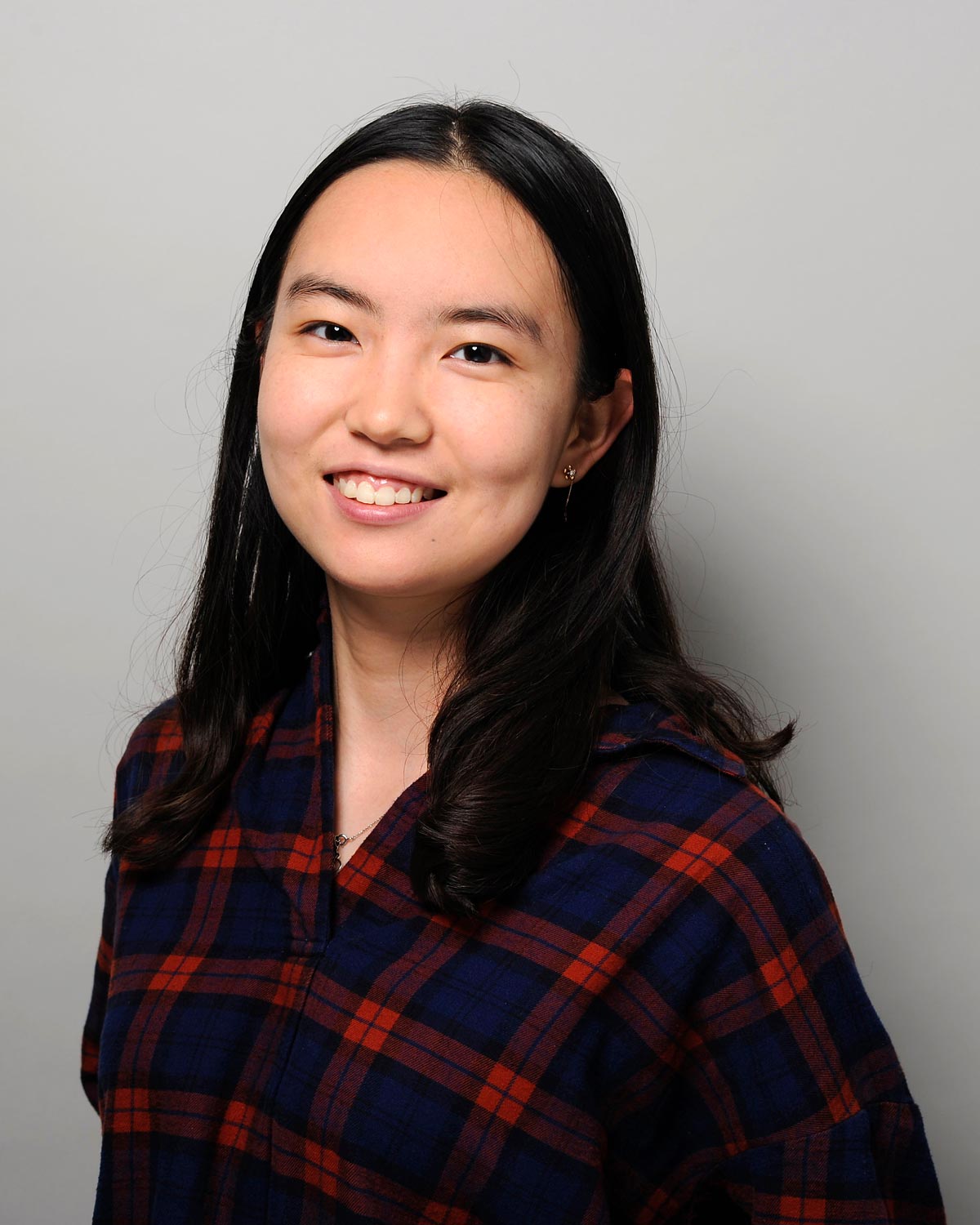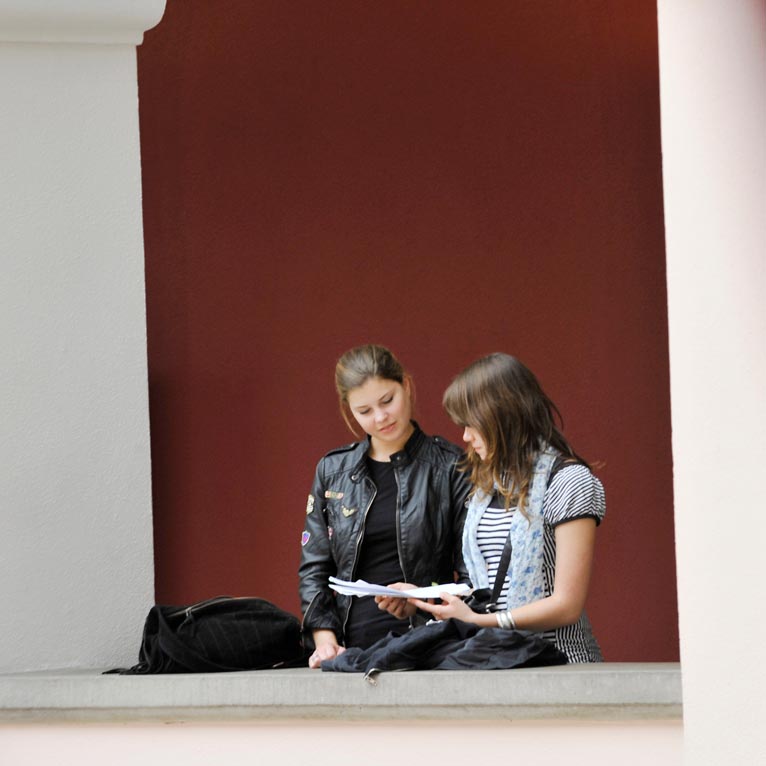Shaping the future of economic research
Jindi Huang is one of three students, who has been awarded a UBS Center Scholarship at the Zurich Graduate School of Economics. Her research explores the cognitive and emotional processes that shape decision-making, from how individuals recognize comparative advantage to how emotions influence attention and preferences. By combining theory with carefully designed experiments, Jindi aims to refine economic models so they better capture real human behavior.
Interview by Maura Wyler
What are you working on in your PhD?
My research lies at the intersection of behavioral and experimental economics, with a focus on the cognitive and motivational processes that drive decision-making. I study how individuals recognize and act on comparative advantage in cooperative settings, how they form and update beliefs when their causal models are mis-specified, and how emotions influence attention and revealed preferences. Methodologically, I primarily rely on experiments, which allow me to rigorously test theoretical predictions and uncover systematic deviations from standard economic models.
Why does your research matter for the way we understand the economy and design policy?
My research contributes to a more realistic understanding of decision-making by highlighting systematic cognitive biases and emotional drivers that shape behavior. For example, if people struggle to recognize comparative advantage in cooperative settings, this may explain resistance to trade or inefficiencies in household, team and organizational cooperation. Similarly, my work on emotional inattention has policy relevance for designing effective labor-market interventions, where small changes in feedback framing could prevent cycles of discouragement.
What do you hope to achieve with your research?
With my research, I hope to advance a more human-centered economics, one that accounts for our cognitive limits and emotional drivers, and that ultimately enhances our understanding of ourselves as well as the design of policies and institutions. The UBS Center Scholarship plays a crucial role by giving me the time and resources to develop early-stage projects that rely on iterative experimentation. It also provides a valuable platform to communicate my findings beyond academia, amplifying their societal impact.
If you could pick one big challenge in economics you’d like to see solved in the next decade, what would it be?
If I could choose one big challenge, it would be identifying which models, or which assumptions within them, most insightfully describe real-world behavior. While economics offers no shortage of models, we still know relatively little about which ones best capture how people actually make decisions. I am particularly inspired by George Box’s remark, “All models are wrong, but some are useful”. Behavioral economics, often positioned as a corrective to classical theory, captivates me because it continually challenges me to reconsider what constitutes the most fundamental and elegant ways to understand human behavior.
Is that also the reason why you chose to pursue a PhD in economics?
My interest in this challenge is closely tied to why I chose to pursue a PhD in economics. I was drawn to a PhD in economics by a desire to understand the hidden forces that shape our choices, what Timothy Wilson describes as the way “we are strangers to ourselves”. Classical economic theory provides a mathematically elegant framework for modeling human decisions, yet it leaves many puzzles and open questions. Behavioral and experimental economics, in particular, offer a way to explore these puzzles with both theoretical rigor and empirical precision. What excites me most is the interplay between abstract ideas and concrete evidence, and the opportunity to uncover surprising patterns in human behavior.
Jindi Huang is one of three students, who has been awarded a UBS Center Scholarship at the Zurich Graduate School of Economics. Her research explores the cognitive and emotional processes that shape decision-making, from how individuals recognize comparative advantage to how emotions influence attention and preferences. By combining theory with carefully designed experiments, Jindi aims to refine economic models so they better capture real human behavior.
Interview by Maura Wyler
What are you working on in your PhD?
My research lies at the intersection of behavioral and experimental economics, with a focus on the cognitive and motivational processes that drive decision-making. I study how individuals recognize and act on comparative advantage in cooperative settings, how they form and update beliefs when their causal models are mis-specified, and how emotions influence attention and revealed preferences. Methodologically, I primarily rely on experiments, which allow me to rigorously test theoretical predictions and uncover systematic deviations from standard economic models.

Quotes
Awarding top academic talents
The UBS Center is a main funding body for top academic talent at the Zurich University’s Graduate School of Economics.
The UBS Center Scholarships are scholarships awarded every year to outstanding PhD students at the Zurich Graduate School of Economics, run by the Department of Economics at the University of Zurich. Furthermore, by funding new endowed chairs at the Department of Economics, the UBS Center will create additional doctoral positions for talented young researchers beyond the scholarship scheme. This will ensure that the Zurich Graduate School of Economics achieves a critical mass of top young talent to create a leading international graduate school with an attractive research environment. By strengthening the University of Zurich’s position as a destination for young academic talent around the world, the UBS Center also aims to further enhance Switzerland’s position as a top location for education and business more generally. After all, investment in higher education and research is a key factor in preserving and further growing economic prosperity in developed economies over the long term.
The UBS Center is a main funding body for top academic talent at the Zurich University’s Graduate School of Economics.
The UBS Center Scholarships are scholarships awarded every year to outstanding PhD students at the Zurich Graduate School of Economics, run by the Department of Economics at the University of Zurich. Furthermore, by funding new endowed chairs at the Department of Economics, the UBS Center will create additional doctoral positions for talented young researchers beyond the scholarship scheme. This will ensure that the Zurich Graduate School of Economics achieves a critical mass of top young talent to create a leading international graduate school with an attractive research environment. By strengthening the University of Zurich’s position as a destination for young academic talent around the world, the UBS Center also aims to further enhance Switzerland’s position as a top location for education and business more generally. After all, investment in higher education and research is a key factor in preserving and further growing economic prosperity in developed economies over the long term.

Contact
Jindi Huang is a fast-track PhD student in Economics at the University of Zurich, specializing in behavioral and experimental economics. Before starting her PhD, she earned her Bachelor’s degree in Economics from Peking University. Jindi’s research focuses on the cognitive biases and non-standard preferences that shape how people make decisions. She designs experiments to test the predictions of leading economic models and use the resulting insights to inform and refine theories that more accurately capture human behavior. By bridging theory with experimental evidence, she aims to better understand how people form preferences, reason through choices, and arrive at decisions.
Jindi Huang is a fast-track PhD student in Economics at the University of Zurich, specializing in behavioral and experimental economics. Before starting her PhD, she earned her Bachelor’s degree in Economics from Peking University. Jindi’s research focuses on the cognitive biases and non-standard preferences that shape how people make decisions. She designs experiments to test the predictions of leading economic models and use the resulting insights to inform and refine theories that more accurately capture human behavior. By bridging theory with experimental evidence, she aims to better understand how people form preferences, reason through choices, and arrive at decisions.
